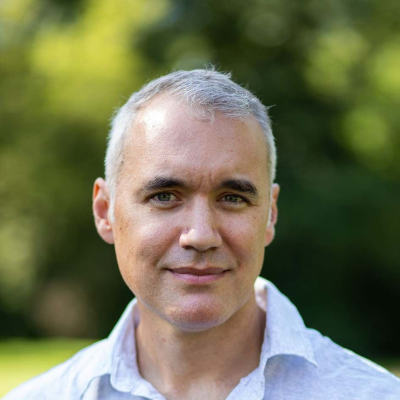Nationwide survey reveals fresh insights about community perceptions of large-scale solar developments
Study conducted researchers at by Berkeley Lab, University of Michigan and Michigan State University sheds light on community perceptions of LSS projects

Among residents living within three miles of large-scale solar (LSS) energy developments, “positive” attitudes about the projects outnumbered “negative” attitudes by a nearly 3:1 margin, according to a new survey of nearly 1,000 LSS neighbors across the United States. The nationally representative survey, led by Berkeley Lab and including University of Michigan and Michigan State University researchers, sheds light on community perceptions of LSS projects.

"The responses from residents were generally positive, which is good to see considering the amount of solar that is likely to be developed in the coming years," said Doug Bessette, Associate Professor for Energy Systems in the Department of Community Sustainability at Michigan State University. “At the same time, we saw more negative attitudes associated with larger projects and somewhat less support amongst neighbors living really close, within ¼ mile of projects, so there’s still work to be done.”
Among those surveyed, positive attitudes were indeed more common in residents living farther from LSS projects than in those living nearer. The largest projects tend to provoke negative attitudes, while projects under 100 MW–those requiring less than roughly 600 acres or one square mile–tend to receive mostly positive responses. Factors like aesthetics, economics, and perceptions of fairness in the planning process strongly influence attitudes.
While 42% of respondents support additional LSS in their community compared to 18% who oppose it, respondents favor disturbed sites such as landfills over forests and farmland for future LSS projects.
Residents largely oppose increased state-level decision-making on future LSS siting, preferring increased opportunities for community participation and feedback. They also expressed a preference for local hiring, procurement, and ownership. For reliable information about what impact a proposed project might have on their community, residents trust existing energy project neighbors, community organizations, and university staff.
Despite a high prevalence of LSS projects, more than 80% of respondents were unaware of their local project before construction and a third remained unaware until surveyed, leaving room for improvement in informing and engaging project neighbors to enhance awareness and participation.

Jake White, a PhD student in the Department of Community Sustainability, who contributed to the survey said, “Our findings show that LSS neighbors want to be engaged more, with respondents strongly supporting increased opportunities for participation in planning processes. This demonstrates a big opportunity for improvement in LSS planning processes – hopefully leading to better outcomes for all.”
This survey marks the first nationally representative study of LSS neighbors, providing valuable insights into community perceptions. Further analysis is planned to better understand influencing factors and equity concerns.
The findings are published on Berkeley Lab’s CCSD website.



 Print
Print Email
Email

